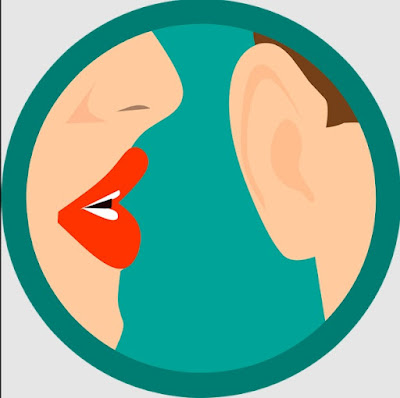5 Ways to Help Your Child With Spelling

Children are usually afraid of vocabulary and spelling as they are difficult to use for them. This may result in their low grades and less understanding of various other subjects as all are written in English. Therefore, it becomes necessary for parents to ease the process of learning for their children.
Before preparing the list of ideas for them, you should also know that the English spelling:
● is a development process
● is a cumulative process
● take time to develop
● is active, not passive
● is a visual skill
● is an auditory skill
● is part of the writing process
Words that are not easily sounded are learned by sight
These words can be practiced at home using flashcards so children can practice reading them easily and quickly.
According to Aark Learnings, children make useful mistakes in their spelling attempts. This is an important part of the learning process, sometimes called "inventive" spelling. As long as the guess makes sense, it shows your child is learning to use spelling rules. For example, if he spells "hear" instead of "here" it shows that your child knows the sound "ear".
Children can often learn a list of words, but then forget to apply what they have learned in their writing when thinking about the creative content of their work. It is therefore a question of reminding them, but also of allowing giving examples of the word in a context.
Low Visual Recall
If your child has poor visual recall, he may not remember what words look like, get confused when writing them, and get an idea of letters and strings of letters but choose the wrong ones.
It is then necessary to train the child's visual memory by taking a mental picture of the word, practice on the shape and size, "do a test" (write the word to see if it is correct: spell check), and encourage proofreading with a spelling/detective partner and use the “look-say-cover-write-check” routine.

Low Auditory Analysis
If your child has weak auditory analysis, they may not be able to tell which letter symbol represents which sound, may not recognize sound similarities, may not hear the constituent sounds of a word, or make guesses, arbitrary and/or random.
It is then necessary to increase the child's auditory analysis by emphasizing the sounds of the word ("sounding them"), saying/repeating the word, syllabifying ("Wed-nes-day"), naming the letters in order, and /or using the sounds in tongue twisters, songs, and poems.

Children Overgeneralize
They use combinations of letters that do not exist in English, but which they hear: “ right ” for “write”. They do not recognize that the interference is often two-way.
We must therefore deal with interference from the majority language by increasing phonemic and structural knowledge of the English language and using comparative strategies.
Children must be taught to make analogies, and connections, look for similarities and differences, test hypotheses, compare languages, deduce rules, encourage them to talk about language and analyze words, link spelling to reading and writing, and discover spelling through semantics and in context, encouraging editing, self- and peer-correction, proofreading and developing dictionary skills: alphabetical order, finding words with a particular group of letters
The Counselor
Talking to your child about his spelling before and after a spelling or writing activity also has a beneficial effect in building spelling confidence, developing confidence in his judgment, showing him that he can work on his spelling, how to learn a word, and ultimately build orthographic autonomy.
You can ask him: What do you think of your spelling? Let me show you how to learn to spell; Which parts of the word do you have problems with? How can you write the word to help you remember it? How can you say it to remember it? Look at the word, the shape, the letters, letter combinations, the size...
Finally, learning to spell is not about learning new words. Look for mistakes your child has made many times. Aim for five to ten words per week. If they try to learn too much, they won't remember. Spelling is about accuracy, not the total word count. It's not about your child learning words so they can spell them correctly. It's about learning words so he can't spell them wrong.
Game Ideas
You can play Hangman: a classic and simple game but kids love it! Use the “keyword” lists from your child's book to get started. Use mnemonics like "because" to help children remember the spelling of multi-syllabic words:

Record your child spelling out every word on your smartphone or tablet. When you practice them, have your child write down each spelling word and then play with their voice. It's amazing how much it entertains and motivates them.
Spelling Survivor is ideal if you have more than one child - or if you want to play on your own! Choose a word. The first person says the first letter, the second person says the second letter, and so on. If you say the wrong letter, you are "out of the game". The winner is the last person still in play: the “survivor”.
Wordsearch: This is a fun way to get your kids to practice spelling that doesn't require the parent to actively control it all the time. Generate an online word search.
Word Maze: Similar to word search but with a bit more variety. Generate a word maze.
Noughts and crosses: You probably know this game as noughts and crosses. Before you can write an "X" in the box, your child must correctly spell a word on their list. Of course, that means you have to do the same thing before you can place an "O"!
Spelling bingo: Write words in a six-box grid and read random words. Your child should cover or cross out the words as they are read. To make things harder, write misspelled words in a few spaces so your child can distinguish between correctly spelled words and incorrect words.
Letter blocks: A great activity for learners with a kinesthetic slant. Also great for learners who have trouble with stems and tails. Use blocks with letters on them. Assemble them as quickly as possible to make a word.
Spelling hop: Like the hopscotch game, another great activity for learners who can't sit still!
